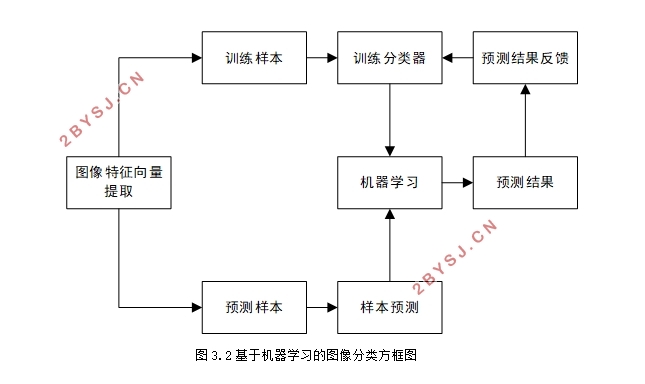基于SVM的图像分类
无需注册登录,支付后按照提示操作即可获取该资料.
基于SVM的图像分类(论文13000字)
摘要:伴随着科技的进步与时代的变迁,人工智能与多媒体信息技术也随着科技的发展更新的越来越快,人们可以通过使用现在的智能手机非常容易和便捷的从网上得到想要的图片信息。在信息时代里,互联网上的数字图像的数量都出现了惊人的增长。在学术界里,怎样高效快捷的对大量的图像信息进行分类处理成为了一个十分热门并且急迫的问题。
本设计以图像分类为研究对象,利用方向梯度直方图和灰度共生矩阵特征为特征提取方法,结合机器学习算法中的支持向量机算法,对图像进行分类识别,并且根据所设计的图像分类程序设计图形用户界面。
关键词:人工智能;图像分类;机器学习;支持向量机;
Image classification based on SVM
Abstract:Along with the changes of The Times and the progress of science and technology, artificial intelligence and multimedia information technology with the development of science and technology also updates faster and faster, people can through the use of the smartphone is very easy and convenient to get want to image information from the Internet. In the information age, the number of digital images on the Internet has increased tremendously. In the academic world, how to efficiently and efficiently deal with a large number of image information becomes a hot and urgent problem.
This design by image classification as the research object, using the gradient direction histogram and gray level co-occurrence matrix feature for feature extraction method, based on support vector machine (SVM) algorithm in the machine learning algorithms, classifying the image recognition, and according to the design of image classification program design graphical user interface.
Key words:Artificial intelligence;Image classification;Machine learning;Support vector machine;

目录
1绪论 1
1.1 研究背景和意义 1
1.2 研究现状 1
1.3 论文的主要研究工作 2
2 图像特征与机器学习算法 2
2.1 颜色特征 3
2.1.1 RGB 3
2.1.2 HSV 3
2.2 形状特征 3
2.3 纹理特征 4
2.4 机器学习算法 4
2.4.1机器学习概念 4
2.4.2 机器学习算法SVM 4
3 基于SVM的图像分类 6
3.1 传统图像分类 6
3.2 基于机器学习的图像分类 7
3.3 基于SVM与HOG对图像进行分类 7
3.3.1 方向梯度直方图介绍 7
3.3.2 HOG特征提取 8
3.3.3 SVM结合HOG对图像进行简单分类 9
4 SVM结合多特征对图像进行分类 11
4.1 基于灰度共生矩阵的纹理特征提取 12
4.2 SVM结合HOG特征与GLCM特征对图像进行分类 14
5 GUI设计 16
5.1 GUI界面整体框架 16
5.2 GUI界面程序实现 16
6 总结与展望 19
6.1 本文的工作总结 19
6.2 未来的展望 19
参考文献 21
致谢 22
